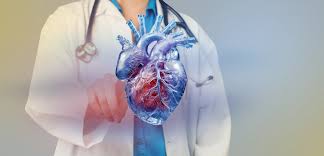
Breakthrough in Cardiovascular Medicine: Reprogramming Cells to Heal the Heart
Cardiovascular diseases remain the leading cause of death worldwide, claiming millions of lives annually. These conditions inflict damage that is notoriously difficult to repair, as the heart has limited regenerative capacity. But an innovative approach developed by scientists at Korea University offers a glimpse of hope. Led by Dr. Myeong-Hwa Song, the research team has unveiled a groundbreaking method to reprogram the body’s own cells, transforming common connective tissue cells—fibroblasts—into mature, functional heart cells known as induced cardiomyocytes (iCMs).
The technique combines fibroblast growth factor 4 (FGF4) with vitamin C to accelerate cell maturation and improve functionality. “Our findings bring us closer to transforming regenerative medicine into practical therapies,” said Dr. Song, from Korea University’s Department of Cardiology in Seoul. She explained that their approach bypasses the intermediate stem cell stage, directly reprogramming fibroblasts into iCMs—a process known as direct cardiac reprogramming. This approach is promising but has historically faced challenges in producing fully mature and functional cardiomyocytes.
The team addressed this challenge by activating the JAK2-STAT3 signaling pathway, a critical cellular mechanism. Using advanced techniques such as RNA sequencing, fluorescence imaging, and electrophysiological testing, they achieved significant milestones. The reprogrammed cells demonstrated improved structure, including well-defined sarcomeres and T-tubules, essential components of muscle contraction. Additionally, they showed enhanced electrical activity and ion channel function, hallmarks of healthy heart cells.
“These advancements are a major step forward,” Dr. Song explained, emphasizing that their research not only enhances the efficiency of creating mature iCMs but also paves the way for personalized regenerative therapies. The findings, published in Experimental & Molecular Medicine on October 10, 2024, hold immense potential for treating heart conditions such as damage caused by heart attacks.
If successful in clinical trials, this method could revolutionize cardiovascular medicine. By reprogramming a patient’s own cells to repair heart tissue, the reliance on heart transplants could be significantly reduced, offering a personalized and less invasive solution for millions of patients.
Despite the promising results, challenges remain. “We’re thrilled with these results, but this is just the beginning,” said Dr. Song. “More research will be required before we can bring this approach to patients. That said, the possibilities are incredibly exciting.”
This breakthrough in direct cardiac reprogramming highlights the remarkable progress in regenerative medicine and underscores the potential for new, transformative treatments in the fight against cardiovascular disease. With continued research and refinement, the vision of repairing damaged hearts through personalized cell-based therapies is moving closer to reality.